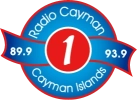2026-2027 Budget Passed in Parliament
The Cayman Islands 2026-2027 budget was passed in Parliament on Friday, 21 November after a five-day Finance Committee deliberation.
Minister for Finance & Economic Development Hon. Rolston Anglin first presented The Appropriation (Financial Years 2026 and 2027) Bill, 2025 to Parliament on 6 November and presided as Chairman of Finance Committee from 13 November to 19 November, during which time the two-year budget was extensively reviewed through a detailed, line-by-line examination and discussion of each appropriation. During this process, Ministers and Official Members presented details of their Agencies’ budget plans and all Members of Parliament had the option to ask questions on each line item.
The Appropriation (Financial Years 2026 and 2027) Bill, 2025 was given a third reading on 21 November and passed. The Bill, which outlines government spending for the next two fiscal years, received 11 votes in favour, with four Opposition members abstaining. Four members of Parliament were absent during the sitting.
The next legislative steps are for the Governor to Assent to the Appropriation Act and for the Act to be Gazetted which must occur by 31 December 2025 for the Government to have the legislative authority to incur expenditures from 1 January 2026
In his Budget Address when the Bill was presented, Minister Anglin noted that, inclusive of planned borrowing, the 2026-2027 Budget is in full compliance with the Principles of Responsible Financial Management as prescribed by the Public Management and Finance Act, or PMFA and those specified in the Framework for Fiscal Responsibility (the FFR).
Key features of the 2026-2027 budget are:
· Core Government is forecast to earn Operating Revenues of $1.26 billion in 2026 and
$1.32 billion in 2027;
· Core Government’s Operating Expenses (inclusive of Financing Expenses) are forecast to be $1.25 billion in 2026 and $1.29 billion in 2027;
· Core Government Operating Surpluses are forecast to be approximately $11.1 million in 2026 and $37.7 million in 2027; and
· Closing Cash Balances are expected to be $428.6 million at 31 December 2026 and $470.7 million at 31 December 2027.
New Revenue Measures are projected to generate additional revenues of $72.5 million in 2026 and $99.9 million in 2027. These include:
· Bank and Trust Licenses increases to provide an additional $1.9 million in 2026 and $3.25 million in 2027;
· Insurance Licence Fees increases to yield an additional $0.7 million starting in 2026;
· Exempt Companies (under the Trade and Business License Act) fee increases to generate an additional $1.17 million in 2026 and 2027;
· Annual operational licence fees for accounting firms increases to provide an additional $3.48 million in 2026 and 2027;
· Special Economic Zone Trade Certificate Fees increases to yield an additional $0.3 million in 2026 and 2027;
· Fund Annual Return Filing Fees increases to generate an additional $11.1 million in 2026 and 2027;
· The introduction of an annual $100 fee for Exempted Limited Partnership and Corporate Service Providers Fees estimated to provide an additional $4.1 million per year;
· The introduction of a Virtual Assets (Service Providers) Fee estimated to yield an additional $0.3 million per year; and
· Increases to Registration and Annual Company Fees estimated to generate an additional $20.3 million commencing in 2027.
Additional new revenue measures relate to the Legal Profession and are estimated to yield an additional $10.2 million in 2026 and $6.3 million in 2027. Fees to be increased in this category include:
- Practising Certificate Fees;
- The one-time Admission Fee for non-Caymanian Attorneys;
- Law Firm Operational Licence Fees;
- Court Fees; and
- The Court’s Website Recovery Fees.
There are several new revenue measures related to Immigration, which are estimated to yield an additional $15.4 million in 2026 and $17.1 million in 2027 coming from the following sources:
- Increased Work Permit–related Fees;
- Increased Permanent Residency and Caymanian Status Fees;
- Increased fees for Residency Certificates;
- Increases in Other Immigration Administrative Fees, including Business Visitor Permit fees;
- Introduction of an annual Work Permit Fee for work permit holders; and
- Increased Special Economic Zone Fees.
Additional new revenue measures related to Stamp Duty on Land Transfers are estimated to yield an additional $11.7 million in 2026 and $11.2 million in 2027. These increases are expected from the Stamp Duty rate on the sale of property of $2.0 million and above, increasing to 10%.
New revenue measures related to Local Companies Control Licensing Fees for Realtors and Developers are estimated to yield an additional $260,000 in 2026 and 2027.
New revenue measures related to Liquor Licences Fees are estimated to yield an additional $1.6 million in 2026. Traders Licences will increase to yield an additional $1.1 million in 2026 and
2027.
Finally, Motor Vehicle Drivers Licences, Motor Vehicle Charges and private and rental vehicle licences for Non-Caymanians will be increased to yield an additional $9.6 million in 2026 and 2027. These measures include the following:
- Increased Driver Licence Fees for Heavy equipment and special vehicles for Non-Caymanians;
- Increased Driver Licence Fees for Motorcars and trucks up to 3 tons for Non-Caymanians;
- Increased Driver Licence Fees for Motorcycles (both under and over 125cc) for Non-Caymanians;
- Increased Driver Licence Fees for Trucks over 3 tons and buses (up to 25 passengers) for Non-Caymanians:
- Increased Vehicle Licence Fees for Non-Caymanian Owned Private vehicles;
- Increased Vehicle Licence Fees for Non-Caymanian Owned Rental vehicles; and
- Increased Vehicle Licence Fees for Non-Caymanian Owned Trucks and trailers.
In order to meet all of the Government’s planned capital investments over the Budget period, the 2026 and 2027 Budget includes borrowings of up to $236 million over the two-year Budget period.
In his Budget Address, Minister Anglin said, “I would like to emphasise that the proposed borrowings of $236 million will only be used to fund the Government’s Capital programme over the 2026 and 2027 financial years and, will not be used to fund Operating Expenditures as the latter is adequately funded by Operating Revenues.”
Minister Anglin noted that inclusive of proposed new borrowing, “The Government’s Debt-to-GDP Ratio averages 8.5% over the 2026-2027 Budget Period, which is an enviable metric that few countries in the world can match.”
The Government intends to make Capital Investments into Ministries, Portfolios and Offices of approximately $111.3 million in 2026 and a further $97.9 million in 2027.
The major investments in this category include:
- $21.4 million in 2026 and $19.4 million in 2027 for the completion of the new High School on Cayman Brac and the expansion of educational facilities at the Sir John A Cumber Primary School and the Joanna Clarke Primary School;
- $14.1 million in 2026 and $13.4 million in 2027 for the expansion, maintenance and improvement of the road network;
- $15.0 million in 2026 and $15.8 million in 2027 for various infrastructure and development projects; and
- $1.6 million per year in 2026 and 2027 for land acquisition for agricultural purposes and conservation of Cayman’s natural environment.
In addition, the Government is also planning to make Capital Investments into Statutory Authorities and Government Companies totalling $28.2 million in 2026 and a further $27.4 million in 2027.
These investments include:
- $10.5 million in 2026 and $8.5 million in 2027 to Cayman Airways Limited to cover debt servicing and operating expenditures;
- $8.0 million in 2026 and $7.0 million in 2027 to the National Housing Development Trust to cover debt servicing obligations and the construction of affordable homes; and
- $5.0 million in 2026 and $4.0 million in 2027 to the Cayman Turtle Conservation and Education Centre Limited to cover operating losses.
All 2026 to 2027 budget documents can be found online at https://www.gov.ky/finance/publications
All Parliament sessions of the budget debate and Finance Committee may be viewed online at
https://www.youtube.com/playlist?list=PLw4BrYufwdD29YaBzcA6P-LZMlLS6GS7N
Latest News
-
MHES announces new HSA Board members and Governance AuditHealth02 February 2026, 05:11 AM
-
Opposition Calls for Clear Roadmap on Immigration & Labour ReformsPolitics02 February 2026, 05:09 AM
-
Government Delivers on Completing Its Hurricane Melissa SupportWeather30 January 2026, 06:17 AM
-
RCIPS & CBC Conduct Day of Action in Eastern DistrictsPolice/Cou...30 January 2026, 06:17 AM
-
Honouring the Life and Service of Former MP, Austin HarrisPolitics30 January 2026, 06:16 AM


